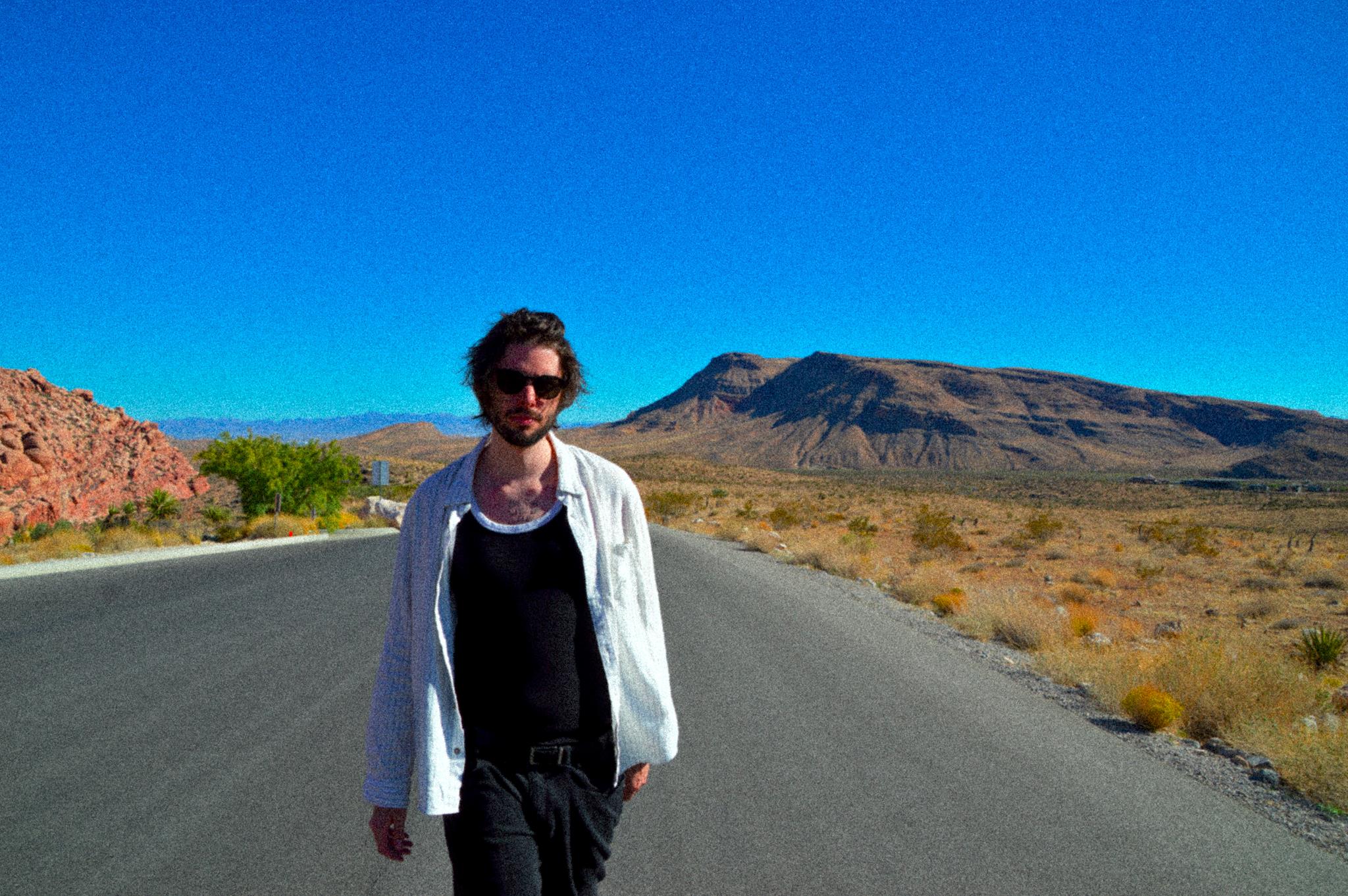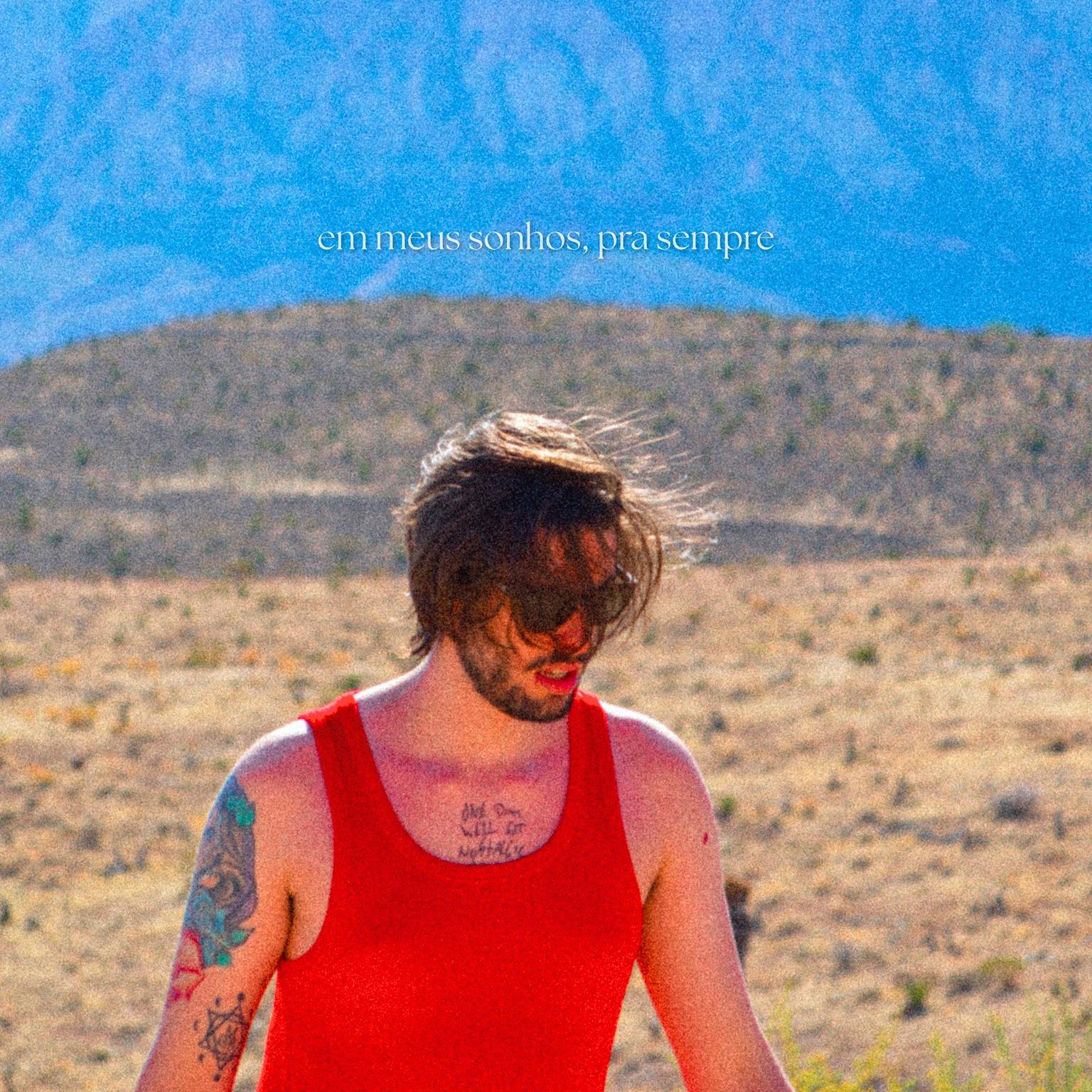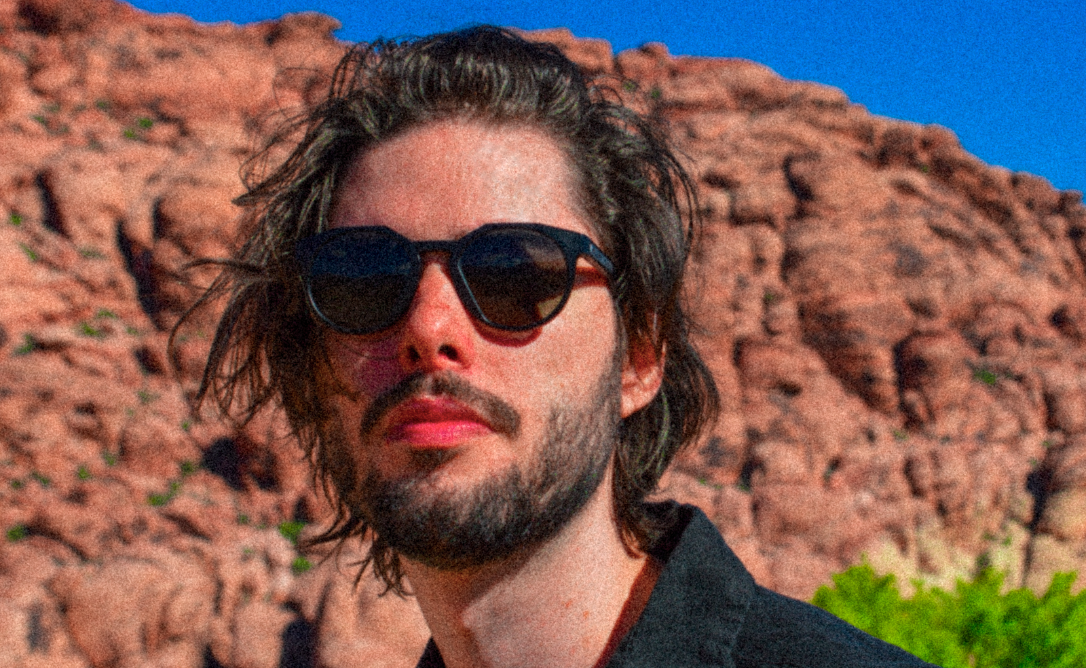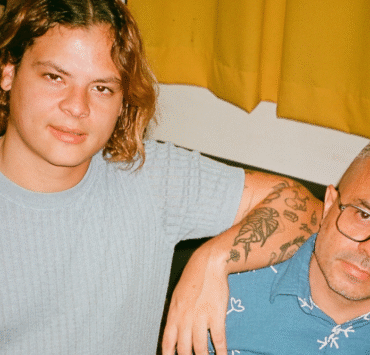Singer, songwriter, and multi-instrumentalist Nathan Bakker officially launches his solo career with the release of “Em Meus Sonhos, Pra Sempre” (In My Dreams, Forever), available on all music streaming platforms from November 28th via Marã Música. After years leading the band Coralinne, the artist delves into a more intimate and personal phase, marked by vulnerability and the search for new forms of expression, translating into sound the emotional permanence of loves that transcend time and physical presence.
The track presents a sensitive reflection on bonds that remain even after parting, inspired by an unexpected connection that led the artist to revisit deep affections and memories. Nathan describes the song as a portrait of love that “doesn’t fade with time, it just changes form,” and constructs this narrative in a sonic journey that evolves from introspective to cathartic, culminating in a chorus that he defines as an emotional explosion—a mirror of the intensity that guides the entire project.
Featuring vocals, guitar, bass, and drums, Nathan conceived the song from its initial structure to the final studio details, in partnership with producer Niko Kamada, known for his work with Di Ferrero and Nx Zero. The solo debut also includes an official music video, filmed in the Las Vegas desert, which will be released on November 29th at 12 PM, directed by filmmaker Baron Readus. The arid landscape of Red Rock Canyon symbolizes the emotional immensity that the artist intends to convey: silence and emptiness as territories where love persists—even if only in dreams.
You describe “In My Dreams, Forever” as a love that doesn’t disappear, it just changes form. Is there a specific memory or image that you hold dear that helped shape this song?
I wrote it after I had just said goodbye to a very special person. It was a way of facing what was happening head-on and allowing myself to transform that farewell into something more beautiful.
In composing and playing all the instruments on the track, you experienced the entire process alone, from beginning to end. At what point during the recording did you realize that this song truly demanded to be a solo release?
This song was written without any intention of becoming a band project or a solo project; it was simply written because it needed to exist. It eventually went through a phase of being a band project, it had a few versions, but in the end I realized it was such a personal story that it deserved to be worked on in a unique way, in my solo career. Having the freedom to create it without the constraints of the band’s genre or the tastes of other members was something very new and immensely valuable. Collaboration is very precious and takes us very far, but there is great satisfaction in being able to execute an idea from beginning to end, alone.
The song is about acceptance, care, and farewell. Do you believe that some people enter our lives simply to transform us, even if they stay for a short time? How does this appear in your musical writing?
I do believe so. These short but intense relationships often leave a deeper mark on me than long ones. It’s as if these people come along just to ignite a new light within me, to show me a side I hadn’t yet seen. In my music, this appears in a somewhat inevitable way. There’s something very beautiful in acknowledging that some encounters are made of both acceptance and farewell at the same time. And ultimately, transforming pain and affection into lyrics is the way I’ve found to continue carrying these people with me, even after they’re gone.

The music video was filmed in the Las Vegas desert, a place where “beauty and emptiness coexist.” If you could leave a single phrase echoing in that space, as if the desert could hold your words, what would you say?
“There’s no rush, it’s still early”
After so many years with Coralinne, what was your greatest discovery—artistic or emotional—when you signed your name on your own for the first time?
I definitely feel like I’ve lost the shield that a band’s name provides for you as a person. If the band is criticized, it’s much easier to channel that criticism professionally than if someone criticizes your solo work, for example. So I’d say it was the discovery that it’s great to handle appreciation for your individual work, but you also need to be prepared to not please everyone.
You said the last chorus is an emotional explosion. Is there something you’d like to “shout to the world,” but can only sing about it right now?
So many of my lyrics function like letters to people and situations, so at other times it would certainly have been wonderful to say all these things face to face with people, the way we sometimes fantasize, you know? When you rehearse in the mirror what you would say to someone if you had the opportunity, but of course it remains only hypothetical.

His influences range from My Chemical Romance to Jão, passing through The 1975 and Twenty One Pilots. What do emo and melancholic pop still have to teach him about how to transform pain into art?
I feel that my emotional makeup would have developed in completely different ways if I hadn’t grown up inspired by artists like these. The way everything was put out into the world without hesitation in being vulnerable is something that completely changed my way of seeing that limit of how far you can open your heart for everyone to see in the form of music.
For those listening to this song during a time of longing, loss, or unfinished business: what kind of embrace do you hope this song will become for that person?
I want this song to be a reminder that love transforms even with farewells and finds ways to stay alive within us, so may it be a comforting sentiment of “see you later” and not “goodbye.”
Follow Nathan Bakker on Instagram





